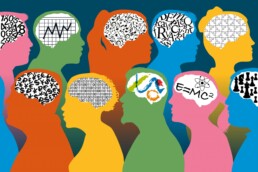Over the years, I and many of my colleagues have come to experience that the vast majority of Muslims do not require scholars (and little do they know what a scholar and his/her remit actually is). What they’re really after: shar’ī trained therapists, counsellors, and murabbis (educator and shar’ī life-coach).
The reasons for this are:
- We live in a time where technologies and modern ideologies/fads have left people confused, which notably leads to emotional and psychological instability.
- The economy, social expectations, and contemporary fashion/outlook has left people with feelings of anxiety and despair.
- Shar’ī literacy is extremely low, and most of what the Muslim majority know is either partially incorrect, misses the point, or based on very erroneous assumptions. (At this level, getting academic about Islam is far too advanced – most need the basics of the basics)
- Subsequent generations of Muslims from immigrant communities (which make up the majority) struggle to find an adequate model for western Muslim living, in a way that faithfully, confidently, and productively navigates the complexities of living in modern western society. Additionally, inherited norms and attitudes conflict with their aspirations, outlooks and feelings that are shaped by a (western) cultural and social environment that significantly differs from that of the cultural environment their parents or grandparents were shaped by and which later generations are (often counter-productively) socialised into at home.
- Regressive attitudes within many ethno-cultural communities (and of course every culture has them) coupled with shar’ī illiteracy and a politicised/weaponised Islam has led to: the dismal treatment of Muslim women and other groups, misery-inducing expectations of others, and personal dejection. From amongst the results, many Muslim men/women suffer a crisis of masculinity/femininity as well as too many Muslim women left morose with mistrust due to bad attitudes and treatment.
When people come to a scholar, they’re not really looking for a legal judgement or a theological solution, they’re looking for someone who’ll help to talk through their personal problems and help them come to some basic conclusions in a way that considers their religious aspirations. Even if they’re asking a theological question (such as divine decree or free-will) often it has to do with uncertainties in their personal lives rather than simply an intellectual issue. Some simply want such a therapist/counsellor to give them a version/narrative of faith that’ll quell their anxieties and help them overcome emotional challenges. Nearly all imams (as well as those popularly taken as scholars) are actually therapists, counsellors and murabbis.
However, this doesn’t render actual scholars useless, and in fact, where a scholar can also engage with people as a murabbi, it’s a very powerful and productive experience since they bring the weight of what they know about the sharī’ah with all of its intricacies to real-life practical situations in order cultivate the best of outcomes, rather than the reductive views of many preachers and clerics.




